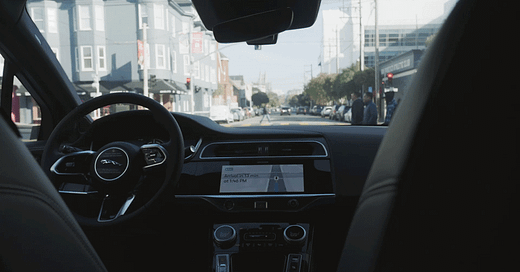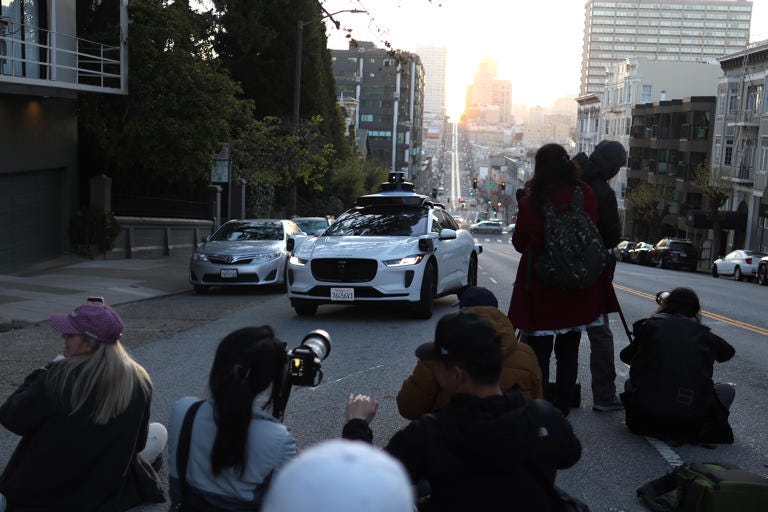Robot taxi riders in San Francisco targeted with a new form of harassment
SAN FRANCISCO — Stephanie, a tech worker in San Francisco, was drawn to the robot taxis that Alphabet’s Waymo operates in the city because she felt more secure without a human driver.
SAN FRANCISCO — Stephanie, a tech worker in San Francisco, was drawn to the robot taxis that Alphabet’s Waymo operates in the city because she felt more secure without a human driver. The vehicles provide hundreds of thousands of driverless rides each month, city data shows.
“It’s so much safer, especially for a woman,” she said in a phone interview this month. “You’re not getting in the car with some strange man.”
But when a self-driving ride turned scary last month, she found herself wishing there had been a stranger behind the wheel after all.
Stephanie recalled riding home with her sister in one of Waymo’s driverless Jaguar SUVs around 10:30 p.m. on a Saturday night when a car holding several young men began following them. They drove close to the robotaxi honking and yelling, “Hey, ladies — you guys are hot.”
If she or another human had been driving, it would have been easy to reroute the car to avoid leading the pursuers to her home. But she was scared and didn’t know how to change the robot’s path. She called 911, but a dispatcher said they couldn’t send a police car to a moving vehicle, Stephanie recalled.
“All the safety things then become unsafe if someone is following you,” she said of the incident, which Waymo confirmed and has not been previously reported.
As Waymo expands its service in San Francisco, Los Angeles, Phoenix and Austin, some passengers like Stephanie have found that traveling by robotaxi can make riders into sitting ducks for a new form of public harassment.
Robot taxi riders in San Francisco targeted with a new form of harassment© Justin Sullivan/Getty Images
The Washington Post spoke with four Waymo passengers, three of them women, who said they experienced harassment or what felt like threats to their safety from people who followed, obstructed or attempted to enter a driverless vehicle they were riding in.
Some had reported the incidents to the police or 911 and all spoke on the condition that their last names not be used out of concern for their personal safety.
ll the riders said their experiences with Waymo had generally been positive but that the company should improve on how it responds to threats to riders’ personal safety.
“We take these events very seriously and understand how upsetting they can be,” Waymo spokesman Ethan Teicher said in an email. He said incidents of harassment or attempts to enter one of the company’s vehicles during a ride are “extremely rare.”
Support agents stay on the line with riders who call in such incidents and work with law enforcement as appropriate, Teicher said. Passengers can tell a vehicle to pull over or change its next stop or destination using the Waymo app, or ask a support agent to make similar changes. But support staff cannot redirect a vehicle’s specific route, he said.
Elliot, a tech worker in San Francisco, recalled in a phone interview a “scary” situation during a Waymo ride late one night in October. A pedestrian tried to enter the driverless vehicle as it waited at a red light.
“Go away,” Elliot yelled at the man as he knocked on the window before briefly flashing what looked like a knife, video of the incident viewed by The Post showed. “What are you doing?,” Elliot asked, before the man walked away.
Our IndieGoGo for my new book: Voluntaryism - How the Only “ISM” Fair for Everyone Leads to Harmony, Prosperity and Good Karma for All! has raised $3217 from 72 backers or 12% of our $25,000 goal with 15 days left! You can get some great perks for pre-ordering at https://www.indiegogo.com/projects/voluntaryism-why-we-don-t-need-government








